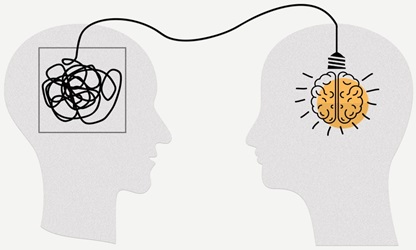 Between limits and limitlessness
Between limits and limitlessness“Don’t shout. Keep your noise within limits” The Professor walking along the corridor cautioned us. With two of my classmates by my side, I entered the classroom. That was the first period post lunch. The classroom was on the first floor of the college building just opposite to the Marina Beach. A cool gently breeze was touching all our senses. The young lady assistant professor was teaching calculus in mathematics. The two dosas I had carried on my packed lunch triggered drowsiness and was further resourced by the gentle breeze.
“Hey, are you sleeping?’ the voice shattered my slumber. “Mam” I stood up. Tell me what the limits for this function are?”
I stood dumb. “If you stand like this you will get a zero in your exam” she said. My friend from the next bench winked at me. That was the clue “Mam, is zero a limit?
“Okay, what is the other limit?” I was surprised. How sometimes the stupidity could also be treated as an answer. “Think, there are infinite possibilities.” She spoke.
“OMG, mam, is infinity a limit?” She smiled and I sat down.
I couldn’t accept either zero or infinity as limits.

“Mam,” I stood up. “Is zero and infinity just a construct of the human mind? How do we know they are limits? And does infinity show the limit or limitlessness?”
“Listen, this is Maths period and not Philosophy. You ask these questions to some philosopher.”
“No mam. I read somewhere a quote from Aristotle who said, “The only limits that exist are the ones in your own mind.” That is why asked?”
“Neither are we living in Aristotle’s time nor are we debating any questions on logic or other rhetoric’s Pleas sit down.”
The problem relating lo limits and limitlessness has always been haunting my mind. Limits are always considered as the outcome of the reach of several sensory inputs to the mind, cognized, conceived, interpreted and figured. “Once we accept our limits, we go beyond them, “said Albert Einstein
Limits, I presume, beyond the definitions of any logic, are the constructs of a human mind, the products of cognition trying to control the human mind and its intuition. While limits sometimes draw an outline map for us to perform, to achieve, to prove, help to motivate us to move forward. Thus, they tend to give us the mythical reach for achievements, happiness and goals.
Says Bertrand Russel “In the visible world, the Milky Way is a tiny fragment; within this fragment, the solar system is an infinitesimal speck, and of this speck our planet is a microscopic dot.”
And, having read this quote when a student stood up and asked “Sir, If the solar system is infinitesimal speck, how do we conceive infinity?”
“You cannot conceive infinity” I replied.
“Then, how do put a non-conceivable entity as a limit?” I was praying God that the bell should ring for the period.
Time and space have always been referred to as timeless, though for its own convenience, the human mind has attempted to give it a cognitive frame.
Who would give me the correct answer? Says W.W. Rouse Ball, in his book “A Short Account of the History of Mathematics”- “It was Newton's good luck to come at a time when everything was ripe for the discovery, and his ability enabled him to construct almost at once a complete calculus.”
Now I must go in search of the research of Sir Issac Newton to find how he conceived the idea of limits in a limitless world. The problem appears to be neither with the definitions of limits and limitlessness, nor with Newton, but it is with my ability of comprehension. According to Ada Lovelace, “Understand well as I may, my comprehension can only be an infinitesimal fraction of all I want to understand.”
Decades back, while working with a friend on a documentary, he asked me to suggest the name, and I was quick enough to say, “Beyond the horizon”. Imagine for a minute, even the term horizon is beyond comprehension and if the mind suggests “Beyond the horizon,” the culpability of the human mind to put us into problems unknown without solution is also limitless.
“You don't have to push yourself to the limit if you have none” says Mashona Dhliwayo. Then why do we struggle between limits and limitlessness?
Limitlessness is like the golden goose. And limits seem to be tempting us to kill the goose for a few eggs.
“Even the simplest calculation in the purest mathematics can have terrible consequences. Without the invention of the infinitesimal calculus most of our technology would have been impossible. Should we say therefore that calculus is bad?” asks Stanislaw Ulam, the Polish American Mathematician.
Anyhow, when I watch the fight between calculus and logic on limits and limitlessness, I do realize the immense potential I have within me and tend to appreciate the words of Hiral Nagda “You are beyond limitations and belong where infinite possibilities exist.”
As I settled down in quietude, a friend with whom I had a dialogue on this issue texted me the meaning of a verse from Rig Veda (Poorna Mantra) “That is whole; this is whole; From that whole this whole came; From that whole, this whole removed, what remains is whole.”
The limits and limitlessness have opened me up to my existential conflict!